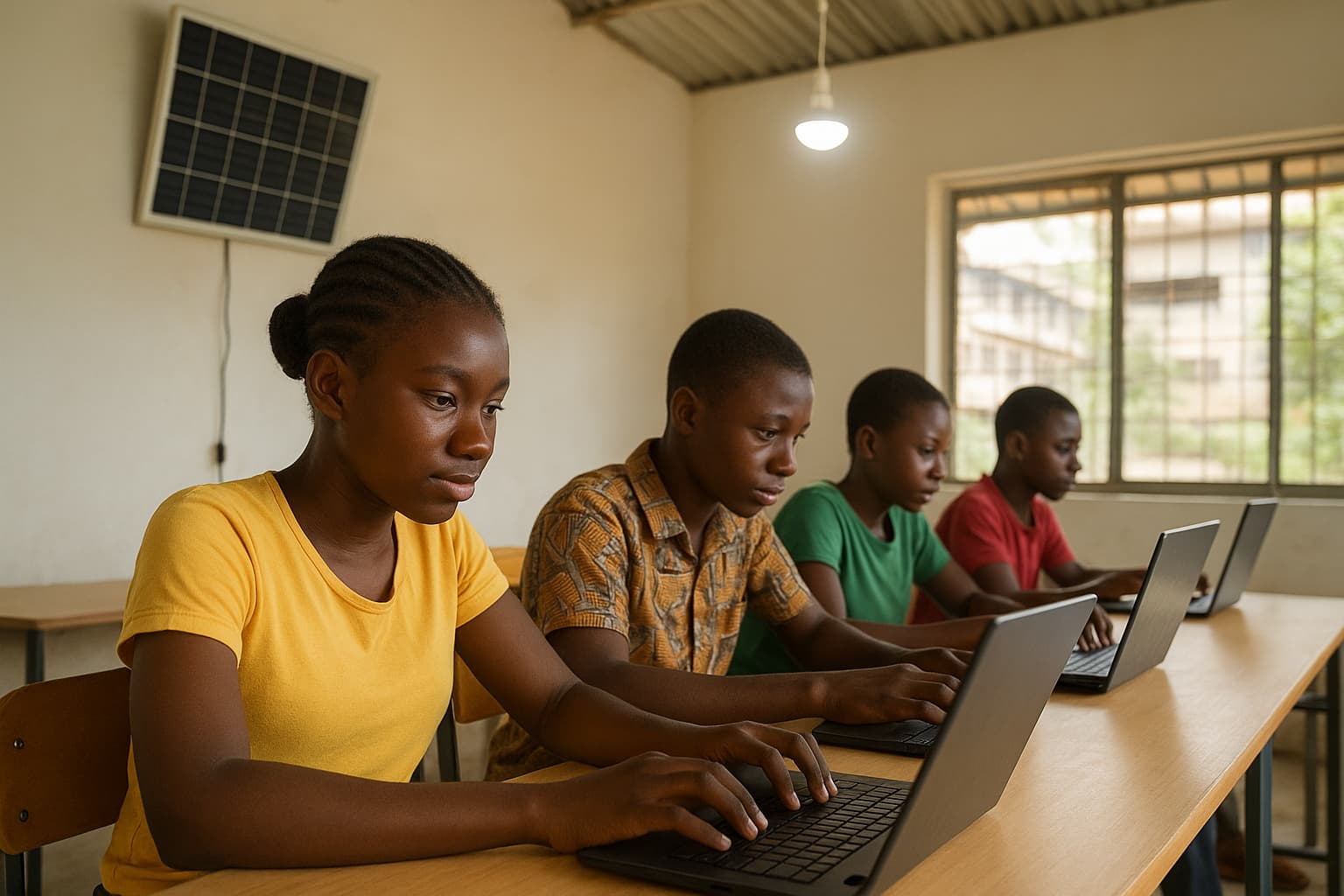AI in Africa: 5 Strong Reasons Why Digital Equality Matters Now
The rapid rise of Artificial Intelligence (AI) is transforming industries, reshaping economies, and influencing how societies function worldwide. Yet, when it comes to Africa, the continent finds itself at a crossroads. While AI brings hope for innovation and sustainable development, it also exposes the deep gaps in access, knowledge, and opportunities. Without tackling these gaps, Africa risks falling further behind in the global digital race. In this article, we will explore five powerful reasons why achieving digital equality is not only urgent but vital for the continent’s future.
AI in Africa and the Digital Divide
AI in Africa highlights a paradox: the technology has the potential to close economic gaps, yet the lack of digital equality often widens them. Many African nations still struggle with limited internet penetration, poor digital infrastructure, and inconsistent electricity supply. These barriers prevent millions from accessing digital tools that are common in other parts of the world. For example, while AI-powered healthcare tools are making strides in Europe and Asia, vast rural areas in Africa continue to face shortages of doctors and lack the connectivity needed to benefit from such technologies. Bridging this divide is the first and most essential step toward making AI work for everyone on the continent.
Education and Skills Gap: The Core Challenge
Another critical challenge for AI in Africa is the shortage of education and digital skills. To compete in the AI-driven future, Africa needs a workforce trained in coding, machine learning, data science, and robotics. Unfortunately, many schools across the continent lack the resources to introduce students to even basic digital literacy. Without investing in accessible and high-quality education, the continent risks creating a generation excluded from the digital economy. Encouragingly, some local initiatives are emerging such as coding bootcamps and mobile learning platforms that aim to empower African youth. However, scaling these efforts will be key if Africa wants to claim its seat at the global AI table.
Access to Funding and Investment
AI in Africa cannot flourish without access to sufficient funding and investment. Startups and research institutions across the continent often struggle to attract international investors due to misconceptions about market potential and high perceived risks. While some promising AI-focused ventures have emerged, many lack the financial backing needed to scale their solutions. Governments and private sectors must work together to create environments that encourage local investment and reduce barriers for foreign stakeholders. Strong financial support is essential to help African innovators develop homegrown solutions tailored to the continent’s unique challenges, such as precision agriculture, renewable energy management, and healthcare diagnostics.
Policy and Ethical Frameworks
The expansion of AI in Africa also raises urgent questions around ethics and regulation. Without strong policies, there is a risk that technologies could be misused or exacerbate existing inequalities. For instance, unregulated use of facial recognition could threaten privacy rights, while biased algorithms might deepen social divides. African governments have a unique opportunity to craft regulations that both protect citizens and encourage innovation. Collaborative frameworks with global organizations, such as the UNESCO AI ethics guidelines, can serve as valuable references. By implementing clear and inclusive policies, Africa can ensure that AI development respects human rights while driving economic progress.
Local Innovation and Cultural Relevance
One of the most powerful aspects of AI in Africa lies in local innovation. Global AI systems are often designed with Western contexts in mind, making them less effective in addressing African realities. For example, language models may fail to understand local dialects, or healthcare algorithms may not reflect African genetic diversity. To maximize impact, African developers and researchers must create solutions that reflect the continent’s cultural, social, and economic contexts. This approach not only makes AI more relevant but also positions Africa as a contributor to the global AI ecosystem rather than just a consumer. Encouraging regional collaboration between universities, research hubs, and tech startups will play a crucial role in achieving this vision.
Infrastructure Development and Connectivity
AI in Africa depends heavily on reliable infrastructure. Unfortunately, millions of people on the continent still lack consistent access to electricity and high-speed internet. Without these basics, advanced technologies like AI cannot be effectively deployed. Governments must prioritize infrastructure projects that expand connectivity to rural and underserved regions. Partnerships with private telecom providers and renewable energy companies can accelerate progress. Reliable infrastructure not only enables AI adoption but also supports broader economic growth and social inclusion.
Collaboration Across Borders
Another pressing issue for AI in Africa is the lack of cross-border collaboration. Many African nations work in isolation, which limits the potential for regional AI ecosystems. Sharing data, resources, and expertise can help overcome challenges more efficiently and foster innovation. Regional organizations and initiatives could play a key role in uniting efforts. For readers interested in how digital transformation already shapes other industries on the continent, you can explore our article on digital transformation in Africa. Such internal connections highlight how collaborative strategies can lead to sustainable and inclusive growth.
Empowering the Next Generation
The future of AI in Africa ultimately depends on its people, especially the younger generation. With Africa’s population being one of the youngest in the world, there is enormous potential to cultivate tech-savvy innovators who can redefine the continent’s digital future. Governments, NGOs, and private organizations must provide mentorship, scholarships, and hands-on training to nurture these talents. By investing in young minds today, Africa can build a workforce capable of not only adopting AI but also leading its development on a global scale.
Conclusion
AI in Africa represents both a challenge and an opportunity. On one hand, limited infrastructure, funding gaps, and educational shortcomings create significant barriers. On the other hand, the continent’s rich diversity, youthful population, and emerging tech hubs present unparalleled opportunities for growth. By addressing the five key issues of digital divide, skills development, funding, ethical policies, and local innovation while also prioritizing infrastructure, collaboration, and youth empowerment Africa can carve out a unique path in the AI-driven future. Digital equality is not a luxury; it is the foundation for ensuring that AI becomes a tool of empowerment rather than exclusion. The time to act is now.




